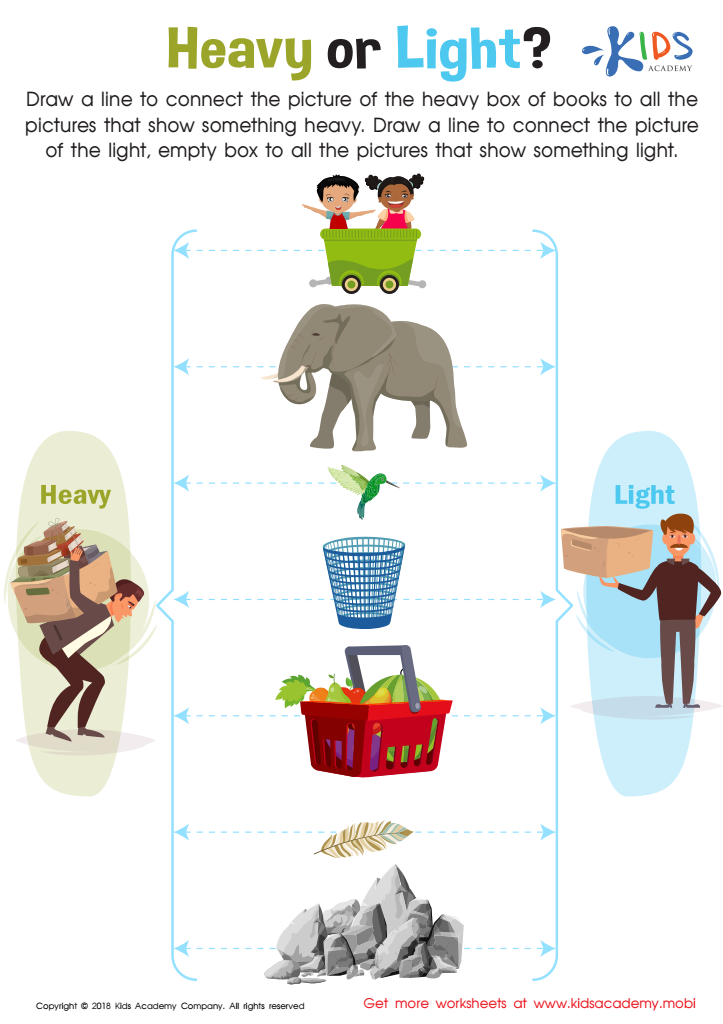Developing estimation skills Worksheets for Kids
1 filtered results
-
From - To


Heavy or Light? Worksheet
Question/Answer
How to test a Preschool student’s Developing estimation skills?
To assess a preschool student's developing estimation skills, engage them in practical, hands-on activities. Present them with a collection of objects (e. g. , blocks, beads, or fruits) and ask them to estimate the quantity before actually counting them.
How to train the Developing estimation skill in Preschool students learning about Measurement?
To train preschoolers in developing estimation skills related to measurement, start with relatable, tangible activities. Use everyday objects and involve them in games that require guessing lengths, heights, or quantities before measuring. Encourage using comparative language like "taller/shorter" or "more/less. " Praise effort over accuracy to build confidence, gradually increasing complexity as their understanding grows.
Why is the Developing estimation skill important for Preschool students?
Developing estimation skills in preschool students is crucial as it lays the foundation for mathematical thinking and problem-solving. It helps them understand quantities, make reasonable guesses, and improves their number sense. This early development is key to building confidence in their ability to interact with numbers, fostering a positive attitude towards learning more complex math concepts in the future.
 Assign to the classroom
Assign to the classroom












